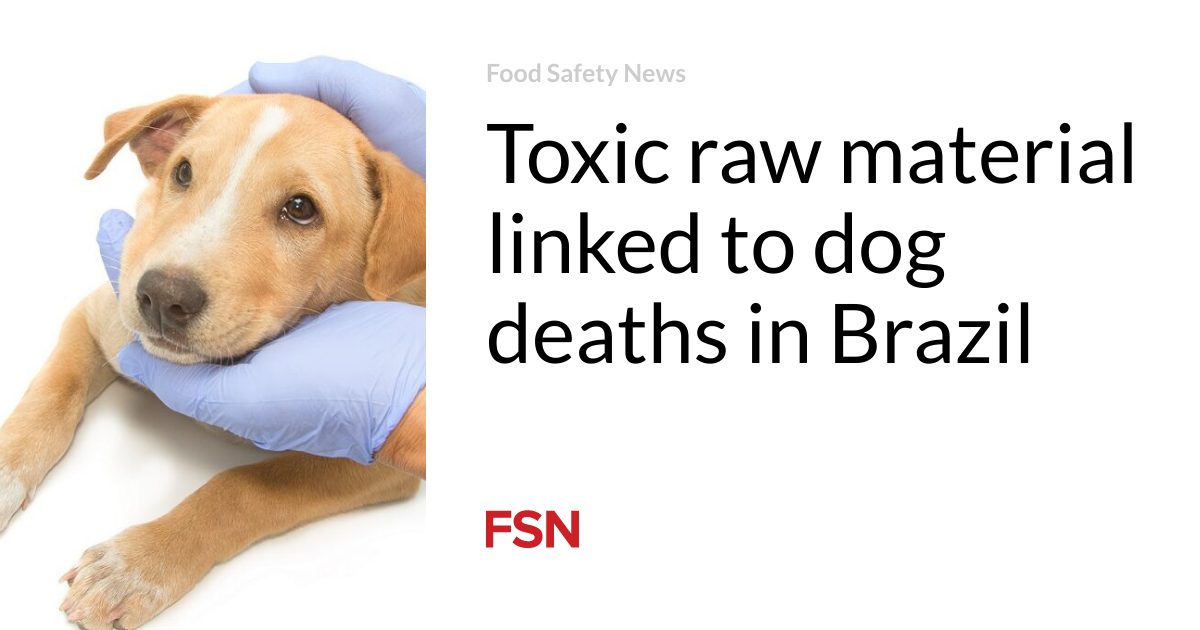A raw material used to make Puppy food has been blamed for a number of dog deaths in Brazil.
The Ministry of Agriculture, Livestock and Supply (Mapa) has suspended the use of two batches of propylene glycol after reports of animal illness.
Propylene glycol is a permitted additive for animal and human food. However, investigations have revealed contamination with ethylene glycol, which is toxic and should not be used in food products. It is not yet known how this happened.
The affected product was purchased from Tecno Clean Industrial and has lot numbers AD5053C22 and AD4055C21. It was used by Bassar Pet Food to make products that were then linked to illnesses in dogs.
Mapa had earlier ordered a halt to operations at Bassar Indústria e Comércio in São Paulo and a recall of all products from the company. This started with Every Day liver flavor with lot code 3554 and Dental Care with lot code 3467.
Members of Mapa’s Animal Products Inspection Department visited the site in Guarulhos this past week. Product samples have been sent for analysis.
Bassar halts operations and recalls products
According to the Civil Police of Minas Gerais, there are nine dogs dead who ate Bassar brand snacks. Six deaths occurred in Belo Horizonte, one in Piumhi, Minas Gerais and two in São Paulo. Media reports suggest up to 40 Puppy illnesses are being investigated.
Bassar Pet Food reported it had stopped production at its factory until the suspected contamination of products is clarified. A specialist company has been brought in to carry out an inspection of all production processes, raw materials and machinery at the plant in São Paulo.
The company said ethylene glycol is not part of any stage of its production chain. All the firm’s products on sale nationally will be removed from stores as a preventive measure.
Bassar had previously sent product samples to national reference institutes to certify the safety and compliance of items under investigation and called on suppliers to investigate the raw materials used to rule out the possibility of contamination.
(To sign up for a free subscription to Food Safety News, click here.)

